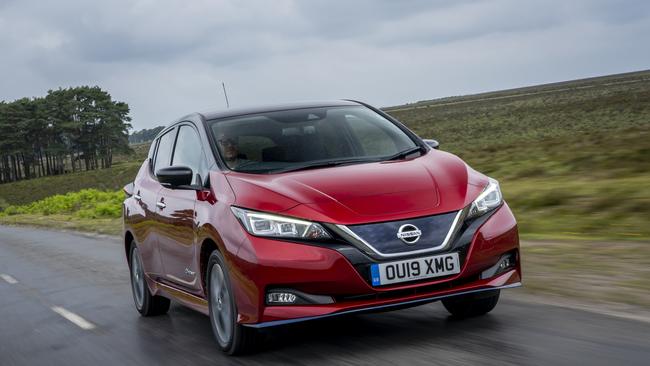Australia a difficult market for electric vehicles: Nissan
Other countries have incentives to buy electric vehicles but some Australian states are looking to tax them, which won’t help already weak sales, says motor industry.

Australia “continues to be a difficult market” for electric and hybrid vehicles, and while we could be a global leader, under current and proposed policy settings we will continue to be a “laggard”, according to global vehicle manufacturer Nissan.
Speaking at a Senate Economics Legislation Committee hearing on Thursday, Nissan Australia’s national manager for electrification and mobility Ben Warren said under current policy settings, which include Victoria’s plan to introduce a new road user charge for electric vehicle owners, EVs and hybrids will struggle to grow market share in Australia.
Both Nissan and the Federal Chamber of Automotive Industries also warned that Australia would potentially be passed over by manufacturers who would supply a greater range of models into markets where there were incentives to purchase EVs and hybrids.
The bill being discussed at Thursday’s hearing seeks to prevent the states putting barriers in the way of EV and hybrid adoption, and “seeks to neutralise the revenue effect of States and Territories that legislate discriminatory taxes or charges against the purchase and use of electric vehicles’’.
It would do this by reducing grant funding to states which introduced “discriminatory” charges for EVs.
In addition to Victoria’s planned road user charge, South Australia also announced a similar proposal in its Budget last year, however has pushed implementation back a year while further consultation is carried out.
Both the FCAI and Nissan told the hearing that a national approach was needed.
Mr Warren said Nissan, which coincidentally was launching its new Leaf e+ model on the same day, still only sold less than 1 per cent electric vehicles in Australia, compared with figures around 10 per cent in the United Kingdom.
“The transition to EVs is still very much in the early stages and requires support for Australia to catch up to the pace of adoption of other comparable OECD nations,’’ Mr Warren said.
“Taxes specifically targeting electrified powertrains will have a significant negative impact on the technology uptake in Australia by impacting both customer demand, and ultimately, prioritisation of global allocation of these new technologies.’’

He also said that the extra administrative burden on EV owners, should they be taxed separately to other road users, was an added disincentive on top of the fact that the vehicles are currently more expensive than internal combustion vehicles.
Mr Warren said the federal government should be setting targets around EV and hybrid take-up, and while a move to a broadbased road user charge replacing other taxes was a good idea, it should not be targeted at electric vehicles.
“Road user charges must represent a fair and equitable way of recovering road maintenance and development costs from all road users, taking into account factors such as wear and tear on the roads through things like mileage, gross vehicle mass, but also supporting and encouraging other key transport objectives such as reducing both transport emissions and congestion,’’ he said.
“Specifically targeting electrified powertrains is unlikely to deliver a significant economic result in the short term, but will impact the environmental and societal benefits that a timely transition to electrified powertrains represents.’’
Mr Warren said “Australia continues to be a difficult market to justify launching and selling’’ electric vehicles.
“In the absence of a long-term national objective focusing on decarbonisation of transport and the associated policy frameworks that come with that, Australia will continue to be a laggard in terms of market uptake and as such will continue to be de-prioritised in terms of receiving the latest vehicles or technology platforms.’’
The Victorian government’s plan would introduce a 2.5c per km charge for electric vehicles and a 2c per km charge for plug-in hybrid electric vehicles.
Recent data from the Australian Bureau of Statistics shows that electric vehicle imports jumped 485 per cent in February to a record $104m, while hybrid vehicle imports were up 101 per cent to $190m.
Sales are still a fraction of overall vehicle sales however, which came in at $3.58bn for the month.







To join the conversation, please log in. Don't have an account? Register
Join the conversation, you are commenting as Logout